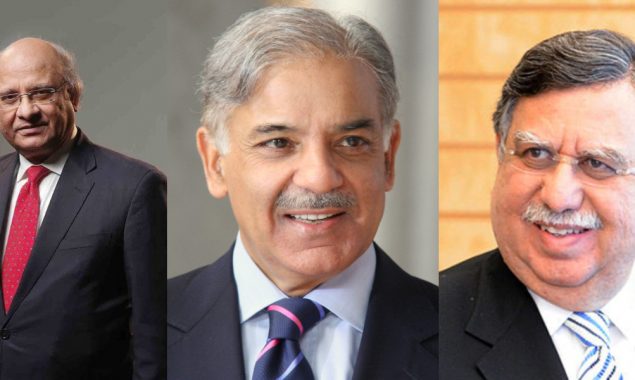Slow progress as Lebanon awaits IMF economic deal
BEIRUT: Lebanon is mired in an economic crisis branded by the World Bank...
The bill, commonly known as mini-budget, envisages withdrawal of exemptions and concession worth Rs350 billion

KARACHI: To win funding from the International Monetary Fund (IMF), Pakistan has passed a mid-year finance bill withdrawing exemptions of Rs350 billion on sales tax and a law to grant its central bank greater autonomy.
The IMF set a condition of budgetary tightening for the revival of a stalled $6 billion package before the approval of the next tranche.
This time the government has chosen the indirect tax for monitoring to bring more people under the tax net.
The withdrawal of duty and tax exemptions and concessions will not bode well for the revenue collection, rather it will only help document the economy.
“The amendments to the finance bill will have no major impact on the revenue collection. But it will certainly improve documentation of the economy,” said Dr Ashfaq Hassan Khan, a senior economist.
It is the government’s responsibility to monitor the goods and services on which the exemptions had been withdrawn, he said.
“There may be a situation when the businessmen pay the tax and get refunds but pass on the burden to the end-consumers,” he said.
On January 13, 2022, the National Assembly approved the Finance (Supplementary) Bill, 2021, amid uproar from the opposition benches. The treasury benches managed to approve the bill with certain amendments. The bill, commonly known as mini-budget, envisaged withdrawal of exemptions and concession worth Rs350 billion.
The withdrawal of exemptions and concession has been substituted with the zero-rated regime. Under this regime, the manufacturers and suppliers have to pay the sales tax and will get refund or adjustment. Therefore, the net impact will be zero and the consumers may not suffer in the shape of inflation.
Finance Minister Shaukat Tarin on the floor of the lower house dispelled the impression that the mini-budget would result in high inflation. Through this bill, the government endeavoured to document the economy, he added.
The retail sector has annual sales of Rs20 trillion; of which only Rs4 trillion is documented, which resulted in lower revenue collection in both direct and indirect taxes. “The previous government has not taken such strenuous efforts to document the economy,” Tarin said, adding the monitoring of sales would result in bringing untapped incomes.
The amendment made through the supplementary budget was to appease the International Monetary Fund (IMF) for meeting certain conditions for the release of the next tranche of over $1 billion under the Extended Fund Facility (EFF).
The IMF Board was scheduled to meet on January 12, 2022 for the review; however, the government requested the IMF to defer the meeting till the end of this month, which was accepted by the board.
Opposition leader in the house, Shahbaz Sharif, severely criticised the passage of the bill.
“Yesterday [January 13, 2022] was a black day in the country’s parliamentary history, as the government imposed a mini-budget on the people already reeling under historic price hike. They won’t forgive PTI for making their lives miserable,” he said.
The masses will bury them with the power of their vote, he said.
A few of the amendments were made to the supplementary bill, which includes sales tax exemption/concessionary rates on laptops to continue; tax exemption for the locally-manufactured (infant milk/cereals) up to Rs500/200 grams will continue; locally-manufactured electric vehicle will be subject to sales tax of 8.5 per cent (up to 1800cc cars) and 12.75 per cent (from 1801cc to 2,500cc cars), respectively, instead of initially proposed 17 per cent sales tax.
Fahad Qasim, analysts at Topline Securities said that the passage of the bill and likely approval of the sixth review by the IMF Board will bode well for the overall external account situation of the country.
“We will see foreign flows from other multilateral and bilateral agencies,” he added.
With the passage of the mini-budget and increased taxation measures, inflationary pressures in the system are likely to continue, going forward, as the companies are likely to pass on the increased cost to the end-consumers.
Catch all the Business News, Breaking News Event and Latest News Updates on The BOL News
Download The BOL News App to get the Daily News Update & Follow us on Google News.